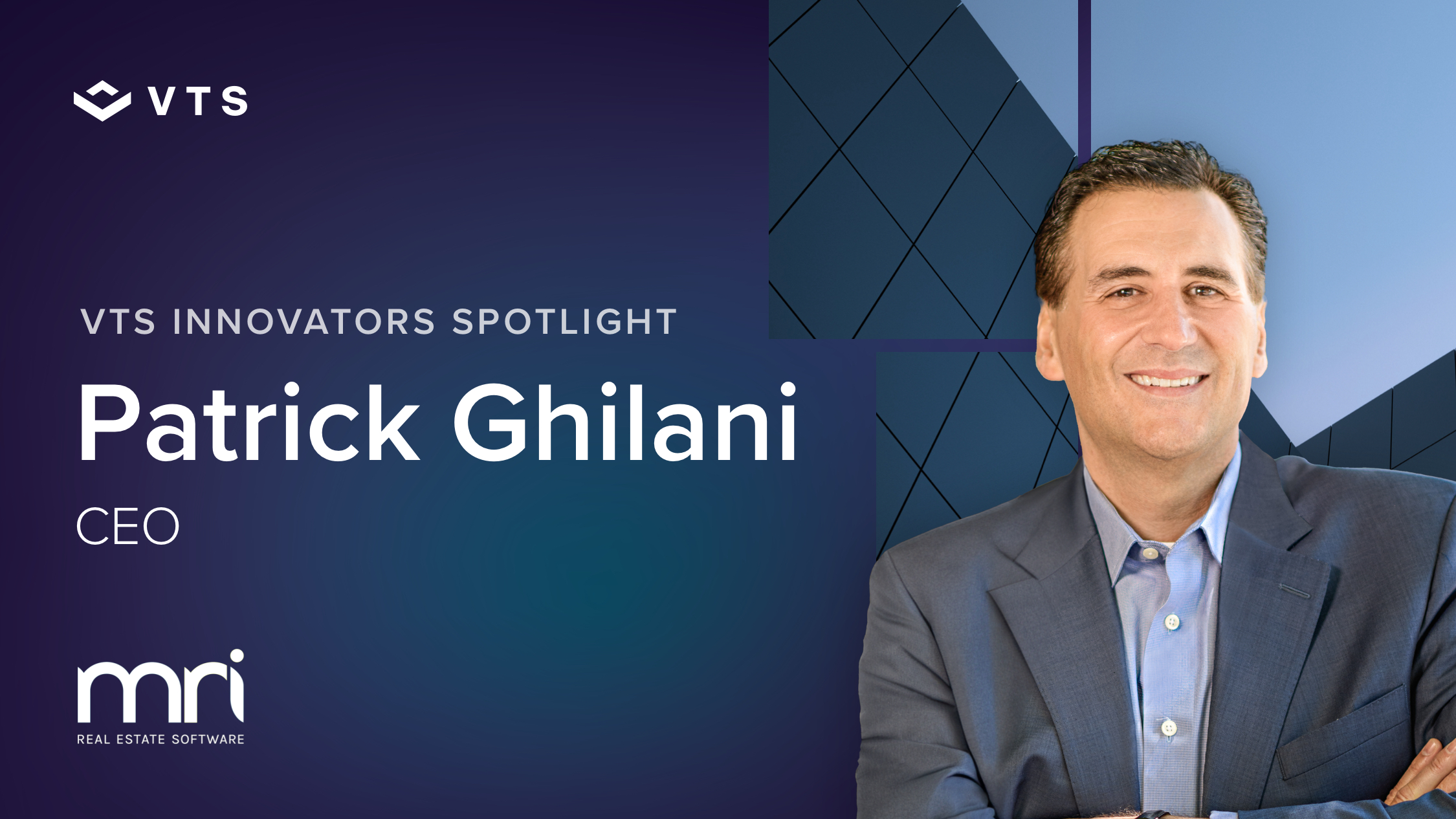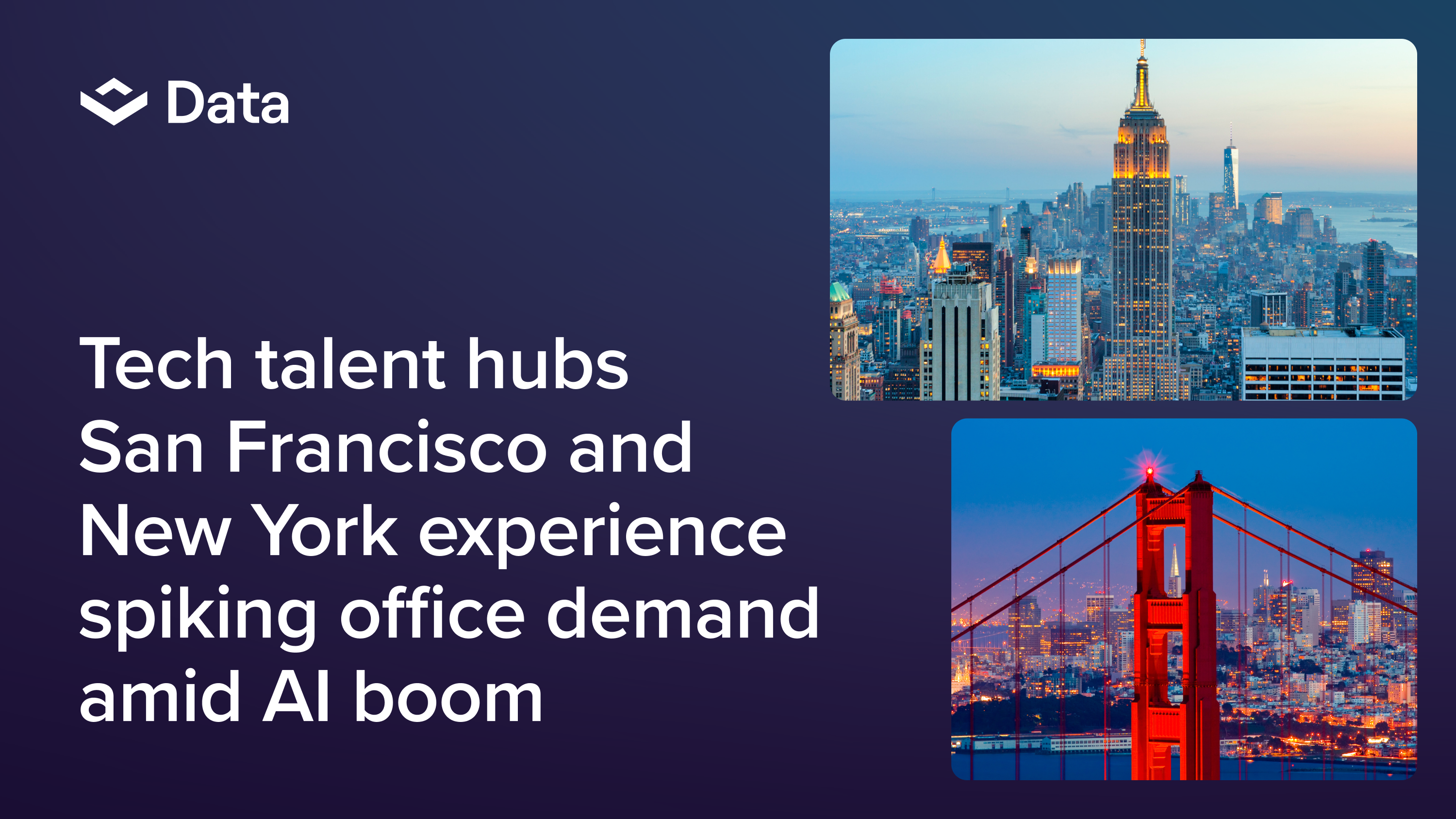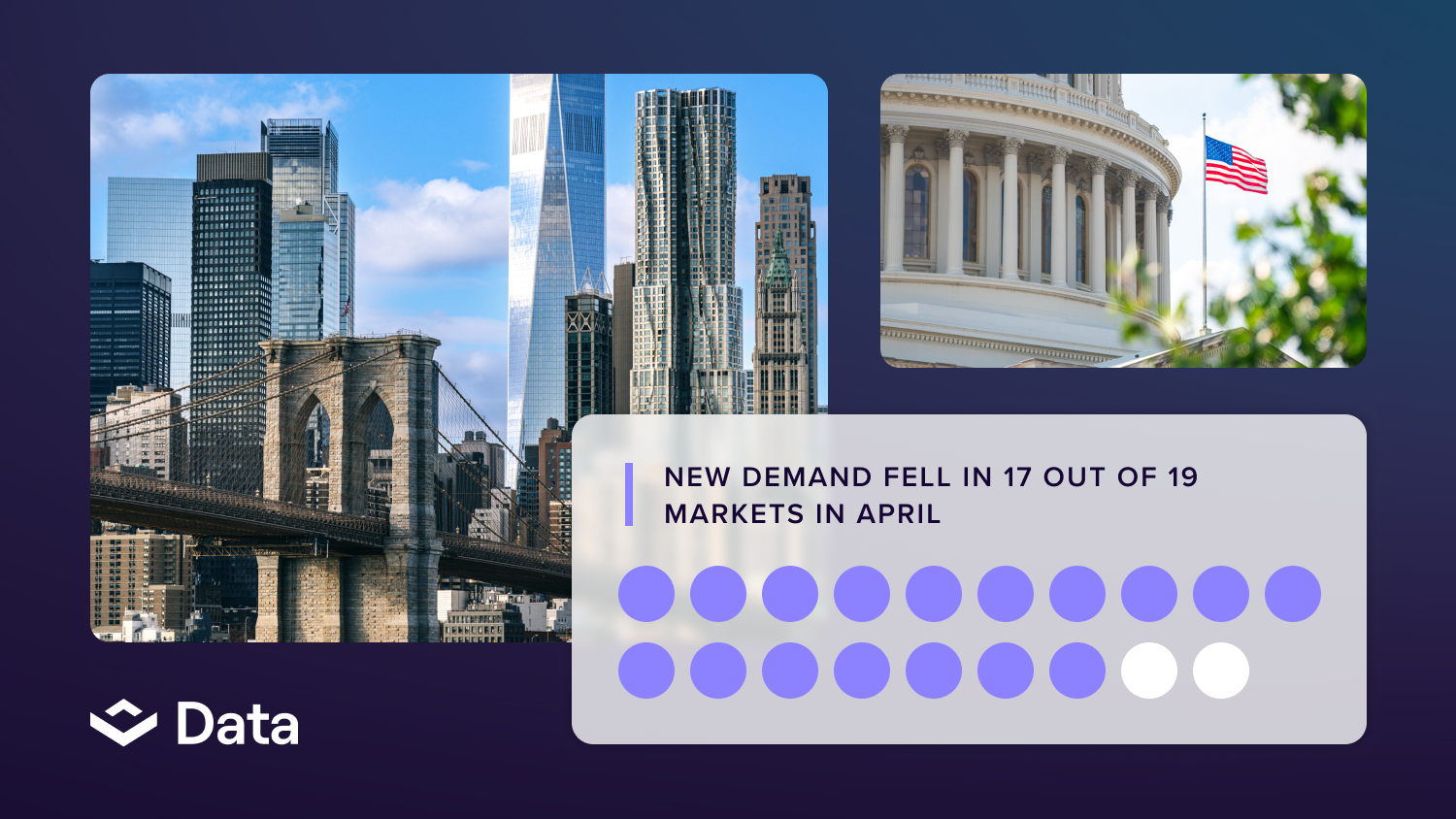While "Proptech" has made its way into the CRE lexicon over the last decade, technology companies like MRI have served the industry through every kind of market for over 50 years. We recently sat with MRI CEO Patrick Ghilani to discuss the future of the Proptech ecosystem, what makes companies like his "sticky," and what customers really want from their technology partners.
Patrick, thank you so much for joining us today. Starting in the early 2010s, Proptech SaaS as a category began explosive growth. A lot of capital was invested, unicorns were born, and partnerships were forged. But interestingly, just as fast as companies entered the market, many exited. Why do you think MRI has had such staying power both before and after the early Proptech boom?
Appreciate the time and opportunity to speak with you! So, MRI has been in an interesting pole position. We started doing this in 1971. Software, technology, Proptech - none of those things really existed as words yet. But what did exist was the problems that owners, operators, and occupiers of large-scale real estate had.
With MRI specifically - why have we been able to thrive for 52 years? It's because we've always focused on solving the most important problems that people need to be more productive, effective, efficient, and ultimately profitable in their businesses.
In the core aspect of our business, we do property management and accounting. And when you think about accounting, managing people's money, I mean, that's been going on since the beginning of time, right? Because we do that, I think it gives us a significant stickiness that maybe other solutions haven't had. The good news is that the industry continues to mature, and some of the foundational things that we've done over the years have evolved into much larger, higher-tech businesses as well.
That makes sense! What's also interesting about the early Proptech boom is it happened at a time when the office sector was riding high, and owners didn't necessarily have to digitize their operations. What do you think drove the initial investment in Proptech from owners, and is the reason for adopting technology now fundamentally different given the market conditions?
So, I think consumers drive the behaviors of businesses, especially in technology. I hate to say this about our space, but real estate historically has been slower in the adoption of technology, and that’s because, in years past, you had a fairly small portion of people on the planet managing their little kingdoms. You had the real estate families of New York, and you had the real estate families of London. Traditionally, they were competitive and unwilling to share information and be as collaborative as consumers desired.
But then you think about the residential world, right? For years (even pre-internet), there was a multi-listing service that had every possible listing on the planet, and you could go to any real estate agent to find out what’s available in the entire neighborhood. The commercial world was different. It was more of - I'll tell you what I have available, and how can I not show you what's across the street?
What I think happened is that consumers began to demand that their business life be more like their personal life. That definitely pushed owners towards Proptech adoption, alongside the demographics of owners and operators getting younger. Whereas the old guard, if you will, came from the world of spending their money on architecture and materials, the younger generation infiltrating real estate has been thinking about modern approaches to value creation.
MRI has expanded significantly over the years in terms of how you serve customers. In your time as CEO, has the corporate strategy been in reaction to market conditions and customer requests, or has your stance been more to anticipate the needs of your customers?
I'd love to say it's a combination of both, and I certainly have examples of both. But the reality is, for 50 years, we’ve pretty much been a client-driven, client-centric business that tends to respond to the needs of our install base. This makes us a little bit different from some of these high-flying companies that came in (and sometimes out of) the industry very quickly. It hasn’t been building around a great idea and hoping someone will like it. We usually build for the “Oh my goodness, I need this now and can you make it for us?” call for help. That’s generally been our paradigm.
Now, what that's helped us create what I believe is our claim to fame - and that is the concept of being a platform-centric business. I could name 200 modules that you can buy from MRI. The reality is you may buy one or 15, but you may also buy items from other companies. But what do you really want? You want your solutions to be like Legos - to put them together and make something personal for you. And so that concept of a personalized solution, we have a little fun with it. We call it “freedom” for our clients.
We also know there are partners in a massive ecosystem that continues to grow. Another part of our strategy is - what if we made it easier for you to pick and choose? What if you could pick the flavors you wanted and make a dinner perfect for your palate? We’ve taken that approach by giving customers the freedom to choose and personalize their solutions.
In conversations with customers here at VTS - hundreds of which we share - "consolidation" and "partnering" are two keywords that pop up constantly - oftentimes in the same breath. What have you been hearing from customers in terms of their desire to consolidate their existing tech stack and work with fewer, more strategic partners?
Yeah, it's an interesting cycle. I mean, if you go back 20, almost 30 years now, the technology world has gone from “I want everything in a box” to “I want everything best of breed.” You don't hear those words anymore: “best of breed.” Then, once best of breed got so difficult to do, then it was, “I want it all in one box.” And it just kept going back and forth.
So whether it's consolidation or fewer vendors, what is it that clients really want? They want solutions; they don't want to pay an arm and a leg for it, and they want it to be easy. And so, the real problem is the ability to take one or many solutions and use them together. It's literally our mission to solve for that problem, because if I could give you all the pieces that you wanted, and it wasn't super expensive to put together, and you didn't have to spend millions of dollars for third-party consultants to put it together, and it didn't take 77 different contracts and maintenance agreements to do it - then you really wouldn't care, right? The reason you care is because it's been difficult.
I think that's really what’s spurred the evolution - the need for simplicity is what people are looking for.
From a more corporate lens, how do you think consolidation and strategic partnerships will shape the future of the Proptech ecosystem? What do you think of MRI's position in that ecosystem, and will it evolve?
I think businesses that buy into the concept that rising tides raise all ships, recognizing that they are not the answer to everything - those are the companies that will thrive the most because that’s what I believe the world wants. That's what consumers want.
Let's look at the biggest example - Apple. So Apple entered a lot of markets with the stance that it was their way or the highway. You had to use just their stuff, their standards, and so forth. There are still business lines like that for them, but when did they boom? They boomed when they opened their app store to third-party developers and generally opened up their technology to work with other things.
So the companies that are saying, guess what, we can provide you a bunch of great solutions, but if you don't want to use all our stuff and go with a different brand? Our products still work together. I think that’s what you’re starting to see in the Proptech space, and I fundamentally believe that will be the future of the Proptech ecosystem.
Sadly enough, I think some of the more creative startups that had really good ideas in the early Proptech boom didn't consider this trajectory. They didn’t think about “how can I be sticky to the old school property management and accounting firms?”. Instead, they sold their solutions as a shiny new car that could only be bought from them. But – to use another analogy - what are you seeing from these hundred-year-old Detroit American automotive manufacturers? They’re all beginning to really win again, this time in the electric space because of their newer technologies working together.
(Author's Note – In the conversation, Patrick also used outer space as an analogy for the Proptech ecosystem. He is a master of comparison.)
Final question - we've been partners since 2015, and it's been an honor working with you all. What impact do you hope the MRI & VTS partnership will make by the time we hit our 10-year anniversary?
So, first of all, it has been amazing to work with VTS, and you continue to be right up there with our most successful partnerships. I think our collective success has come down to two things. One is the complementary technologies we provide together. Two, I also think it’s our shared spirit of serving clients to the best of their needs versus being a selfish software company trying to do everything for everyone.
What we do, and what VTS does collectively, is provide a unified solution set to the most important needs of owners and operators in large-scale real estate. We're going continue to do that, and as we near our 10-year anniversary mark as partners, we're finding ways to scale our impact. Historically, the VTS and MRI combined solution set has been geared toward the larger-end players. But guess what? We’re seeing the SMB side of the market now has the same needs, so now we’re working together to handle smaller portions of the needs set as well.
All that said, the impact we make will come down to more than technology. You have to have a shared disposition and vision to want to hold hands with somebody, and not just make a partnership a logo you put on a website. VTS and MRI have a shared mindset, and I think that’s great.
Want to learn more about our partnership?
Don't miss Gijo Mathew, Product Officer, VTS, speaking at MRI Ascend on October 26.
Or, catch VTS on the showroom floor at booth #709. See you there!






